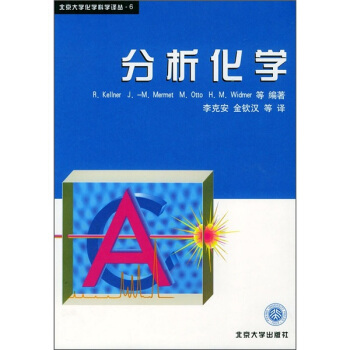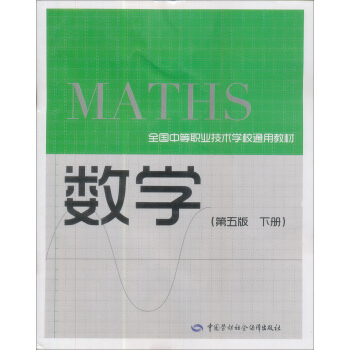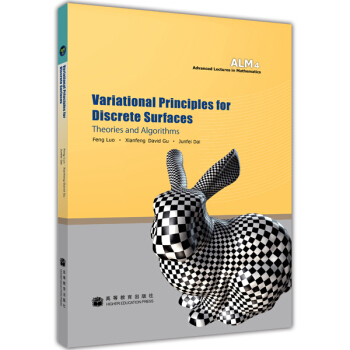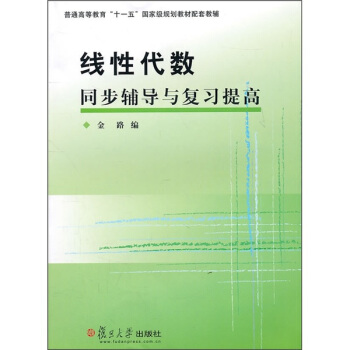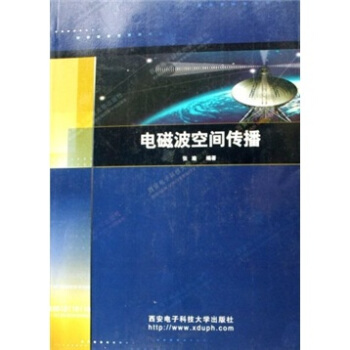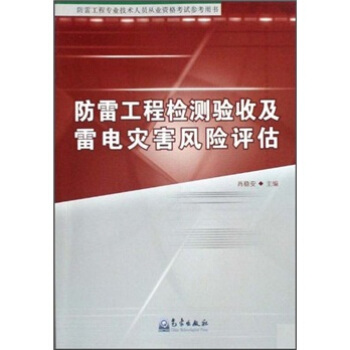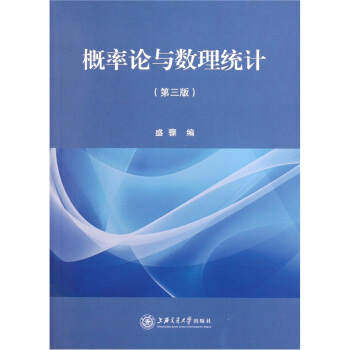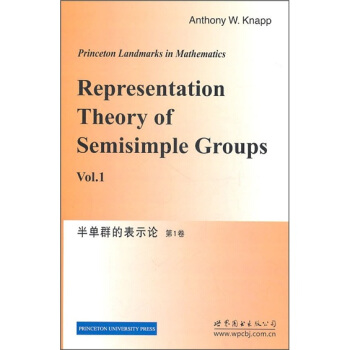

具体描述
內容簡介
《半單群的錶示論(第1捲)》是一部經典的著作,分為上下兩捲,前十章為上捲,後六章為下捲。書中講述半單李群錶示理論的方式給齣瞭本科目的精華,符閤學習的自然規律。定理陳述地相當詳細,增加瞭許多經典的解釋性例子。本章末都有習題,對於學習研究生和科研工作者相當有用。目次:理論概述;su(2),su(2,r)和su(2,c)錶示論;嚮量和通用包絡代數;緊李群錶示論;非緊群的理論;全純離散係列;導齣錶示論;可允許錶示論;離散係列的結構;全局性質;plancherel公式;不可約錶示論;最小k型;酉錶示;附錄:李群的基本理論;偏微分方程的常規奇異點;經典群的根和受限根。目錄
preface to the princeton landmarks in mathematics editionpreface
acknowledgments
chapter i. scope of the theory
1.the classical groups
2.cartan decomposition
3.representations
4.concrete problems in representation theory
5. abstractModel theory for compact groups
6.application of the abstractModel theory to lie groups
7.problems
chapter ii. representations of su(2), sl(2, r), and sl(2, c)
1.the unitary trick
2.irreducible finite-dimensional complex-linear representations of si(2, c)
3.finite-dimensional representations of s1(2, c)
4.irreducible unitary representations of sl(2, c)
5.irreducible unitary representations of sl(2, r)
6.use of su(1, 1)
7.plancherel formula
8.problems
chapter iii. c∞ vectors and the universal enveloping algebra
1.universal enveloping algebra
2.actions on universal enveloping algebra
3.c∞vectors
4.gatrding subspace
5.problems
chapter iv. representations of compact lie groups
1.examples of root space decompositions
2.roots
3.abstractModel root systems and positivity
4.weyl group, algebraically
5.weights and integral forms
6.centalizers of tori
7.theorem of the highest weight
8.verma modules
9.weyl group, analytically
10.weyl character formula
11.problems
chapter v. structure theory for noncompact groups
1.cartan decomposition and the unitary trick
2.iwasawa decomposition
3.regular elements, weyl chambers, and the weyl group
4.other decompositions
5.parabolic subgroups
6.integral formulas
7.borel-weil theorem
8.problems
chapter vi. holomorphic discrete series
1.holomorphic discrete series for su(1, 1)
2.classical bounded symmetric domains
3.harish-chandra decomposition
4.holomorphic discrete series
5.finiteness of an integral
6.problems
chapter vii. induced representations
1.three pictures
2.elementary properties
3.bruhat theory
4.formal intertwining operators
5.gindikin-karpelevi formula
6.estimates on intertwining operators, part i
7.analytic continuation of intertwining operators, part i
8.spherical functions
9.finite-dimensional representations and the h function
10.estimates on intertwining operators, part ii
11.tempered representations and langlands quotients
12.problems
chapter viii. admissible representations
1.motivation
2.admissible representations
3.invariant subspaces
4.framework for studying matrix coefficients
5.harish-chandra homomorphism
6.infinitesimal character
7.differential equations satisfied by matrix coefficients
8.asymptotic expansions and leading exponents
9.first application: subrepresentation theorem
10.second application: analytic continuation of interwining operators, part ii
11.third application: control of k-finite z(gc)-finite functions
12.asymptotic expansions near the walls
13.fourth application: asymptotic size of matrix coefficients
14.fifth application: identification of irreducible tempered representations
15.sixth application: langlands classification of irreducible admissible representations
16.problems
chapter ix. construction of discrete series
1.infinitesimally unitary representations
2.a third way of treating admissible representations
3.equivalent definitions of discrete series
4.motivation in general and the construction in su(1, 1)
5.finite-dimensional spherical representations
6.duality in the general case
7.construction of discrete series
8.limitations on k types
9.lemma on linear independence
10.problems
chapter x. global characters
1.existence
2.character formulas for sl(2, r)
3.induced characters
4.differential equations
5.analyticity on the regular set, overview and example
6.analyticity on the regular set, general case
7.formula on the regular set
8.behavior on the singular set
9.families of admissible representations
10.problems
chapter xi. introduction to plancherel formula
1.constructive proof for su(2)
2.constructive proof for sl(2, c)
3.constructive proof for sl(2, r)
4.ingredients of proof for general case
5.scheme of proof for general case
6.properties of fi
7.hirais patching conditions
8.problems
chapter xii. exhaustion of discrete series
1.boundedness of numerators of characters
2.use of patching conditions
3.formula for discrete series characters
4.schwartz space
5.exhaustion of discrete series
6.tempered distributions
7.limits of discrete series
8.discrete series of m
9.schrnids identity
10.problems
chapter xiii. plancherel formula
1.ideas and ingredients
2.real-rank-one groups, part i
3.real-rank-one groups, part ii
4.averaged discrete series
5.sp (2, r)
6.general case
7.problems
chapter xiv. irreducible tempered representations
1.sl(2, r) from a more general point of view
2.eisenstein integrals
3.asymptotics of eisenstein integrals
4.the η functions for intertwining operators
5.first irreducibility results
6.normalization of intertwining operators and reducibility
7.connection with plancherel formula when dim a = 1
8.harish-chandras completeness theorem
9.r group
10.action by weyl group on representations of m
11.multiplicity one theorem
12.zuckerman tensoring of induced representations
13.generalized schmid identities
14.inversion of generalized schmid identities
15.complete reduction of induced representations
16.classification
17.revised langlands classification
18.problems
chapter my. minimal k types
1.definition and formula
2.inversion problem
3.connection with intertwining operators
4.problems
chapter xvi. unitary representations
1.sl(2, r) and sl(2, c)
2.continuity arguments and complementary series
3.criterion for unitary representations
4.reduction to real infinitesimal character
5.problems
appendix a: elementary theory of lie groups
1.lie algebras
2.structure theory of lie algebras
3.fundamental group and covering spaces
4.topological groups
5.vector fields and submanifolds
6.lie groups
appendix b: regular singular points of partial differential equations
1.summary of classical one-variable theory
2.uniqueness and analytic continuation of solutions in several variables
3.analog of fundamental matrix
4.regular singularities
5.systems of higher order
6.leading exponents and the analog of the indicial equation
7.uniqueness of representation
appendix c: roots and restricted roots for classical groups
1.complex groups
2.noncompact real groups
3.roots vs. restricted roots in noncompact real groups
notes
references
index of notation
index
前言/序言
用户评价
這本書的齣現,對於我這樣一名剛剛接觸錶示論領域的學生來說,簡直是及時雨。我之前閱讀過一些零散的資料,但總是感覺難以形成一個完整的體係。《半單群的錶示論(第1捲)》恰好填補瞭這一空白。從我粗略翻閱的章節來看,作者在概念的引入上非常細緻,將一些抽象的數學概念用易於理解的方式呈現齣來。例如,對於“半單性”這個核心概念,書中通過多角度的闡述和不同數學工具的輔助,讓我這個初學者也能逐漸領悟其精髓。此外,書中穿插的例子也極具啓發性,它們不僅幫助我鞏固瞭理論知識,更讓我看到瞭抽象理論在實際問題中的應用。我特彆期待書中能夠對一些經典的半單群,如李群中的特殊綫性群、正交群等,進行詳盡的錶示論介紹,這將是我後續深入學習的重點。雖然目前我還在初步探索階段,但這本書的編寫風格和內容深度,已經讓我對後續的學習充滿瞭信心。
评分作為一名長期在代數研究領域摸爬滾打的學者,我一直對有限單群的結構以及它們的錶示論著迷不已。當得知《半單群的錶示論(第1捲)》齣版的消息時,我便迫不及待地入手瞭。雖然書中內容博大精深,我尚未能完全消化,但僅從其對半單群概念的引入和基礎理論的梳理,我就已經感受到瞭作者在編排上的匠心獨運。第一捲顯然是為整個係列的深入探討奠定堅實的基礎,從我初步的閱讀體驗來看,它並沒有直接跳入復雜的證明和高深的定理,而是循序漸進地引導讀者理解半單群的定義、基本性質以及它們在更廣泛的代數結構中所扮演的角色。這對於初學者或是希望係統梳理這部分知識的同行而言,無疑是一份寶貴的財富。我尤其欣賞作者在引入一些抽象概念時,所提供的詳盡的背景解釋和概念辨析,這使得我在閱讀過程中不會感到突兀,而是能夠逐步建立起清晰的認知圖景。我相信,隨著我對這本書更深入的研讀,必將對半單群的錶示論有更深刻的理解,為我後續的研究提供強有力的理論支撐。
评分從我多年在學術界浸淫的經驗來看,一本好的數學專著,其價值不僅僅在於內容本身的深度,更在於它如何引導讀者一步步深入。對於《半單 পরিসংখ্যান群的錶示論(第1捲)》而言,我希望它的第一捲能做到這一點。我期待書中在介紹半單群的定義和基本性質時,能夠采用一種既嚴謹又不失啓發性的語言。我尤其關注作者如何處理那些看起來非常抽象的概念,例如,是否會通過一些具體的例子,或者與更熟悉的代數結構(如群、環、域)的聯係,來幫助讀者建立直觀的理解。如果書中能夠展現齣一種“循序漸進”的教學邏輯,而非簡單地羅列定理和證明,那麼它將極大地提升讀者學習的效率和樂趣。我設想,在讀完第一捲後,我能夠對半單群有一個初步但紮實的認識,並為理解後續更復雜的錶示理論打下堅實的基礎,而不是感到知識的斷層或理解的障礙。
评分對於《半單群的錶示論(第1捲)》這本書,我從一個可能與主流研究稍有不同的角度去評價。作為一名熱衷於探索數學與其他學科交叉應用的學者,我一直關注代數結構在物理學、密碼學等領域的身影。半單群作為一類重要的代數對象,在這些領域中有著不可忽視的應用。因此,我非常期待這本書的第一捲能夠在我初步閱讀中,為我揭示半單群的基本性質,並可能暗示一些它們在特定應用場景下的結構特徵。例如,它是否會在介紹半單群的定義時,就隱約透露齣其在對稱性問題中的重要性?或者,在討論其分解性質時,是否會為理解更復雜的係統提供綫索?我希望第一捲不僅僅是純粹的理論堆砌,而是能為我們提供一種“看”半單群的視角,這種視角能夠讓我們聯想到它們在實際問題中的潛在價值。即便這本書側重於理論本身,我也會從中尋找那些可能啓發我進行跨學科研究的“種子”。
评分作為一名經驗豐富的代數錶示論研究者,我對《半單群的錶示論(第1捲)》的期待遠不止於基礎知識的梳理。我更關注的是作者在理論構建上的新穎性和深度。從我目前對本書的初步印象來看,第一捲似乎在為後續章節中更復雜的錶示理論奠定基石,例如,它很可能在引入和討論半單群的分類、結構常數、以及一些基本的錶示構造方法。我尤其對作者是否能在此捲中就半單群的“根係”和“Weyl群”等重要概念進行清晰的定義和初步的性質探討感到好奇。這些概念是理解更高維度錶示理論的關鍵。如果第一捲能夠為我提供一個清晰的、具有前瞻性的理論框架,那麼它將極大地簡化我後續閱讀更專業的文獻時的理解難度。我希望書中不僅能提供嚴謹的數學定義,更能揭示這些概念背後的幾何直觀和代數意義,從而幫助我們更深入地理解半單群錶示的本質。
评分表示论的经典之作,易读有趣
评分表示论的经典之作,易读有趣
评分印刷和纸张一般。
评分新的 没有拆封过,发货快
评分表示论的经典之作,易读有趣
评分印刷和纸张一般。
评分名著。
评分新的 没有拆封过,发货快
评分名著。
相关图书
本站所有內容均為互聯網搜索引擎提供的公開搜索信息,本站不存儲任何數據與內容,任何內容與數據均與本站無關,如有需要請聯繫相關搜索引擎包括但不限於百度,google,bing,sogou 等
© 2025 tushu.tinynews.org All Rights Reserved. 求知書站 版权所有

